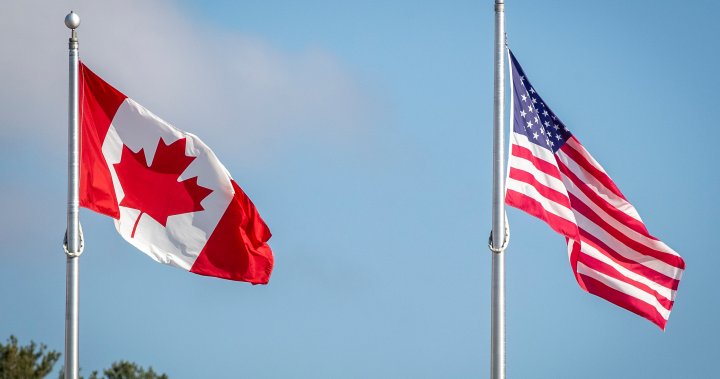canadian border officials told lawmakers Thursday that Canada is not a significant source of fentanyl destined for the United States.
Aaron McCrorie, vice-president of intelligence and law enforcement at the Canada Border Services Agency, made the comment to a parliamentary committee studying the impact of President-elect Donald Trump’s security plans. borders and migration.
CBSA President Erin O’Gorman also said the U.S. Drug Enforcement Administration has labeled the quantity coming from Canada as “skid” — small amounts sent for personal use, primarily through the mail.
Trump has threatened to impose 25% tariffs on Canada and Mexico unless the two countries step up border security to curb the flow of illicit fentanyl.

Get the latest national news
For news impacting Canada and around the world, sign up to receive breaking news alerts sent directly to you as they happen.
During the presidential race, Trump also threatened to deport millions of undocumented people, stoking fears of an influx of migrants into Canada.

Ottawa is developing new measures to strengthen border security with more personnel and equipment in the face of Trump’s tariff threats.
Prime Minister Justin Trudeau shared his border plan with premiers during a meeting Wednesday evening, and Ottawa plans to add their suggestions to the upcoming package of measures.
Several media outlets have reported that the bill could exceed $1 billion, citing confidential sources.
RCMP Commissioner Michael Duheme said he was surprised to see the figure make headlines, and he’s not sure whether Ottawa will actually invest that much in strengthening the border.
He said he plans to use every additional resource at his disposal to make the RCMP rely more on modern technology to enforce the Canada-U.S. border.
An RCMP official said police currently have more than 900 drones and nine helicopters spread across the country, including six helicopters occasionally providing border surveillance.
© 2024 The Canadian Press





